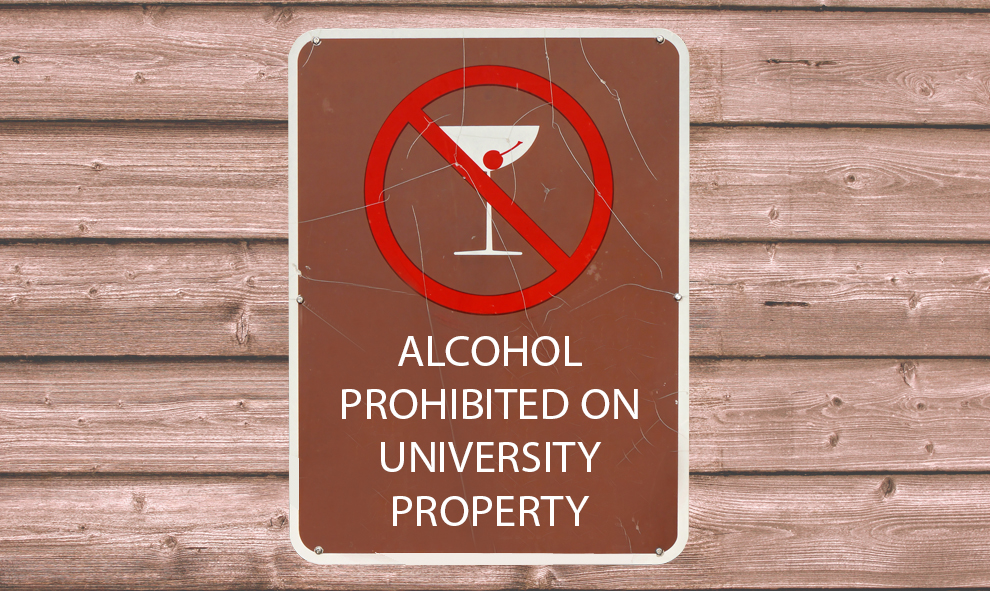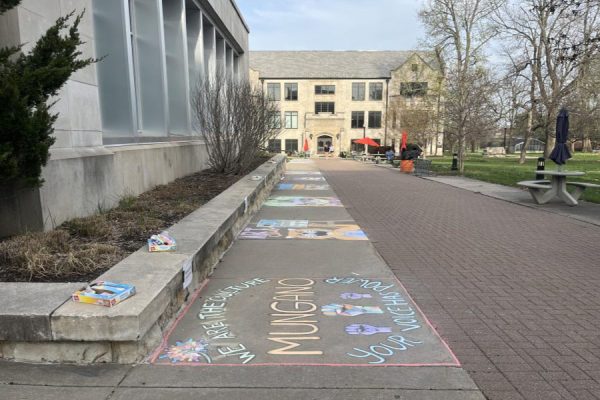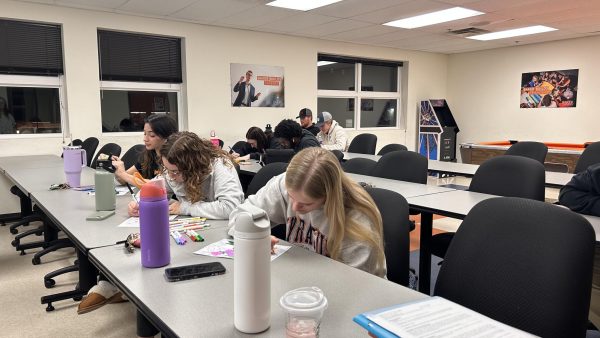Liquor violations increase on campus
November is a month for thankfulness, falling leaves and countdowns to the end of the fall semester.
But unknown by many, this November also marks the 25th anniversary of the Clery Act, which requires any university that receives federal funding to submit an annual campus safety report to the federal government. The Clery Act is named after Jeanne Clery, who was raped and murdered in her residence hall at Leigh University in 1986.
At each of the federally funded universities, there is a specific Title IX coordinator who is required by law to report crimes and campus safety efforts. At Baker, the Title IX coordinator is also a familiar face on campus, Dean of Students Cassy Bailey.
Although Bailey wears many hats on campus, she takes her position as the Title IX coordinator seriously, especially after the notable increase in the number of liquor law violations on campus in Baker’s 2014 Clery Report. Compared to seven reports in 2012 and 20 reports in 2013, the 2014 report rose to 45 liquor law violations on campus property in residence hall facilities.
Bailey believes that the increase in liquor law violations is probably due to more staff enforcement, and she attributes the violations to a couple of larger parties.
“I don’t think those numbers automatically mean that there is more underage drinking,” Bailey said. “It probably tells me that we’re doing a better job of enforcing.”
Nevertheless, the numbers are accurate, which is a harsh truth for Bailey.
“We are always going to report the truth,” Bailey said. “Unfortunately, however, I do think that reflects poorly on Baker.”
Baker University’s Clery Report is available to the public, and along with that, any curious parent of a prospective Baker student can look at the number of liquor law violations on Baker’s campus. This raises concerns for Bailey, as it may be a deciding factor for a family.
“This is obviously not a number to be proud of,” Bailey said. “These Clery Act numbers are definitely not a trophy for the university. This is how people judge us, whether it be prospective students or accrediting bodies.”
One positive Bailey sees in the report is that there are not many second violations of the liquor laws, meaning that students either change their behavior after they get caught, or they simply are not getting caught again.
So far this year in the Markham Apartments, senior resident assistant LaDachia Cain does not report having many problems with drinking or parties and only reports a couple of loud groups.
As for the liquor law violations, Cain believes it is caused partly because of the level of strictness each residence hall staff member has.
“Personally, I think it depends on the AC’s (area coordinators), just because everyone has a different limit on what they will accept and won’t accept because alcohol is allowed in the apartments,” Cain said. “But sometimes if people are under violation (and) they’re being out of hand, they will get in trouble.”
As for helping reduce the number of liquor law violations on campus, Bailey and Cain have several ideas.
Cain believes that the staff should make the alcohol rules more clear to the residents during hall meetings.
“We say that you can have alcohol [in the apartments], and sometimes when we give those meetings, we aren’t very clear,” Cain said.
Residents also get confused about the amount of alcohol they are allowed to have, which is another area of the rules Cain would like to specify.
“We’re all humans – and sometimes we’re not very clear with ‘this is how much you can have,'” Cain said.
Cain also believes that relaxing the enforcement of the rules gives residents too much leverage.
Bailey said there have been more intentional programs about alcohol in residence halls this year, and changes were made in the freshman Salon courses to educate about alcohol as well.
Baldwin City Police Chief Greg Neis said that there is not much local police can do to prevent or limit the number of liquor law violations each year.
“Most of them are minor in possessions,” Neis said. “Also, we’re being called to where the parties are, and we’re finding young people that should not be there consuming alcohol. It’s really hard to prevent that kind of a call.”
As for the 2015 year, Bailey does not predict that the numbers will continue to increase based on what she has seen so far this year in the residence halls.
The Clery Act statistics for Baker’s Baldwin City campus can be found at http://www.bakeru.edu/baldwin-current-students/services/health-a-safety-information/security-reports.












